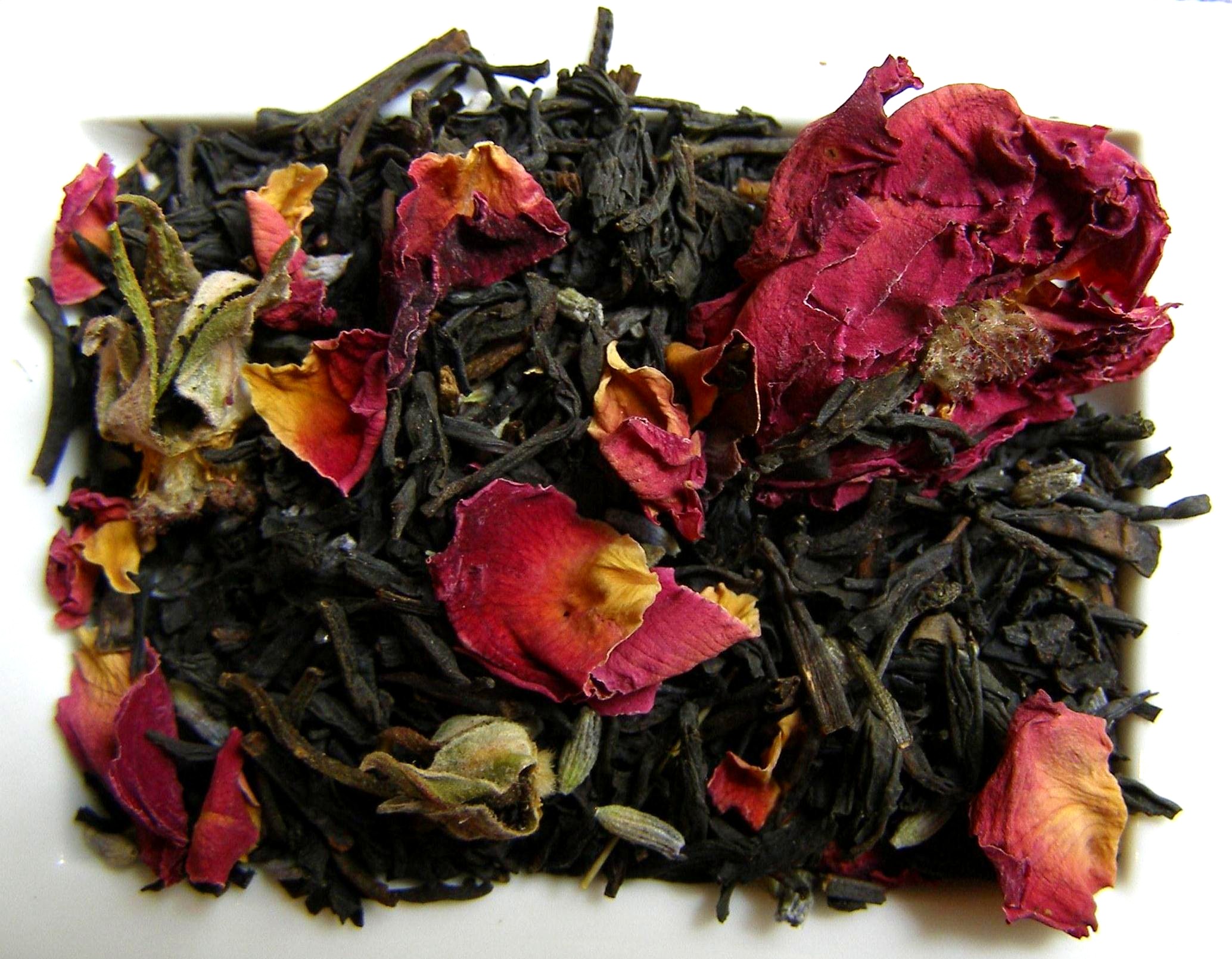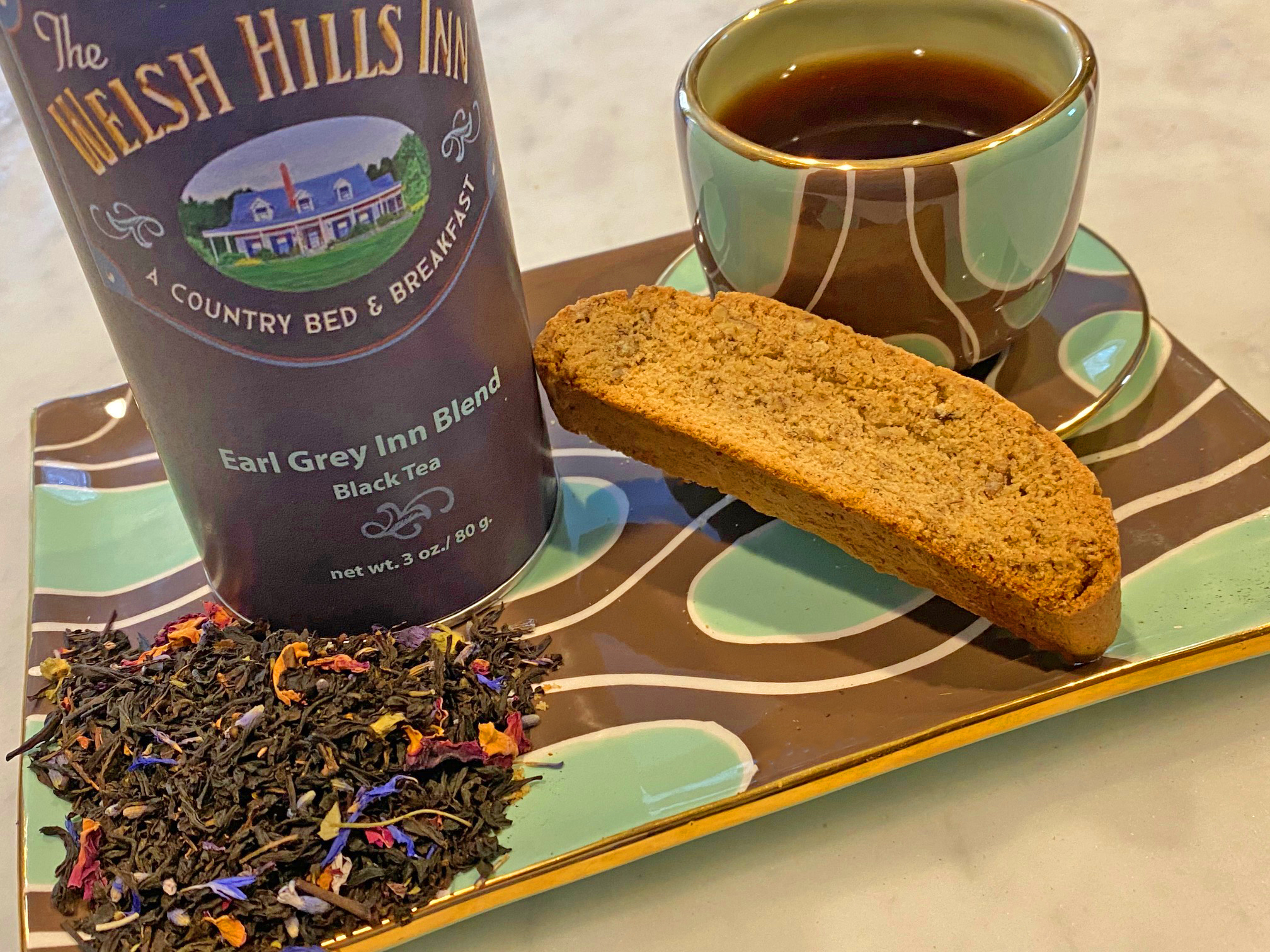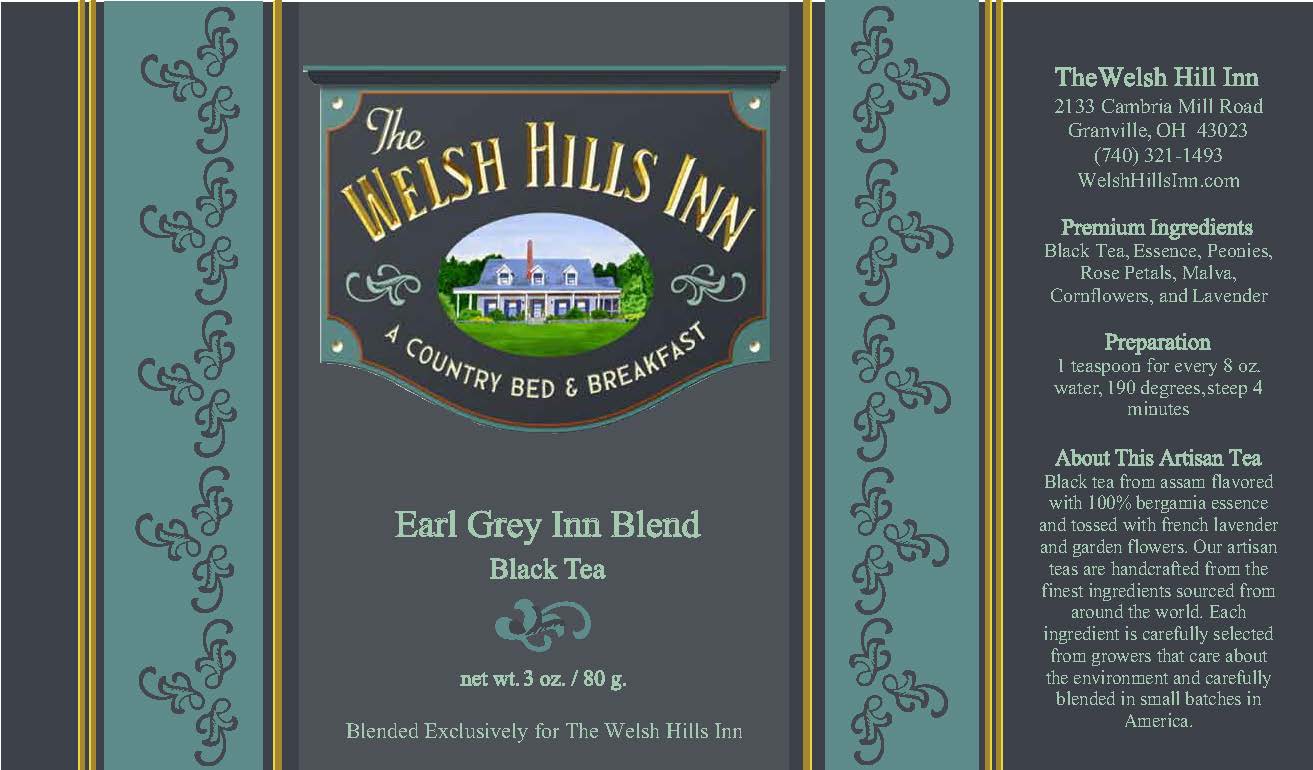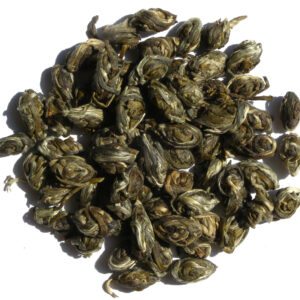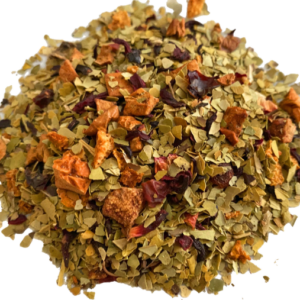This strong and full-bodied Earl Grey black tea blend is the perfect blend to get your day started. When you see the Elephant Approved® logo, the black tea is sourced from small farms in India that let elephants roam freely.
Handcrafted in Ohio. The finest ingredients are sourced from all over the world. This includes full leaves, fruits, berries, nuts, barks, roots, flower petals, and more. You can brew teas hot or cold. Each container includes steep time, serving size, and ingredients.
INGREDIENTS: Black Tea, French Lavender, Malva, Roses, Pure Bergamot Essence
NET WEIGHT: 3 oz. (80g)
About Corridors and Migration:
Fifty percent of all Elephant Approved® products\’ sales directly support the World Land Trust and Wildlife Trust of India. This includes several of our private label black tea blends and our double scoop tea measure. As a result, those funds go to restore corridors in southern India. Corridors are natural passageways for Asian Elephants. However, tea gardens and other agricultural activities have created fragmentation. Visit this link to learn more about the appeal.
Elephant corridors are linear, narrow, natural habitat links. Moreover, these corridors allow movement between secure habitats. They allow elephants to go undisturbed by humans. As a result, the corridors are essential to ensure their future with uninterrupted migration between key habitats.
About Asian Elephants and Habitat:
Elephants are endangered. In addition, tea estates and other crops are a contributing factor. Approximately 37,000 wild Asian Elephants remain on our planet. India holds 60% of the population. Deforestation has caused fragmentation of elephant habitat. As a result, it has interrupted seasonal migration. Elephants cannot discern a tea garden from a forest. And this is where the trouble starts.


Elephants evoke fear. They trample tea gardens, destroy land and homes, and kill an average of 400 people a year. This is called Human-Elephant Conflict. The goal is to recover and restore the natural corridors. As a result, elephants can safely move about without coming in contact with humans. Elephants die because of retaliation killings, including hunting, poisoning, trench trapping, and electrocuting. Also, they struggle for food. They incur injury while crossing roadways.
Ensuring the Future of Asian Elephants:
Elephant conservation is paramount for their survival. Elephants are a keystone species. This means that they play a serious role in the ecosystem. Their habits are necessary for the survival of flora and fauna. They spread seeds, produce fertilizer, prune trees, open tree canopies, and aerate the soil. They are highly intelligent with reasoning skills, emotions, empathy, sympathy. And, they need our help.
Because of the trust, Asian Elephant safety through the corridor can now be secured. The Mudahalli corridor is of vital importance for elephants and other migrating mammals. This includes Bengal Tigers as they attempt to travel between the Ghats mountain ranges for food or mates. The funding is for the land exchange. As a result, the landowner can continue farming away from elephant passages. In other words, this situation is ends-up being a win-win.
It is said that the healthiest tea for you is the one you\’ll want to drink every day. By that definition, if you live in the West, that is probably black tea. Over 90 percent of all tea sold in the West is black tea (or red tea, as it is known in the East).
Nutritional Value:
The major health benefits of black tea include its nutritional value, anti-cancer benefits, digestive benefits, beneficial effects on skin and hair health, and much more. Grab a cup of organic tea and learn more.
Like other types of tea, black tea contains:
- Caffeine
- Amino acids
- Carbohydrates
- Proteins
- Potassium
- Major minerals and trace minerals
- Manganese
- Fluoride
- Polyphenols
Earl Grey black tea also contains catechins. These are the powerful antioxidants in tea that fight cancer-causing cells and help prevent heart disease. Additionally, it contains tannins. These are the naturally occurring chemical compounds that give black tea and red wine their astringency. And black tea contains guanine, a natural stimulant, and xanthine, another natural stimulant similar to caffeine. The many antioxidants and polyphenols in black tea are associated with many health benefits. Specifically, black tea contains complex flavonoids – polyphenols that aid in disease prevention. A single cup of black tea contains an average of 200 mg of flavonoids. Many doctors now recommend getting 600 milligrams of flavonoids per day for a range of health benefits. The flavonoid polyphenols in black tea are known as thearubigin and theaflavin. They act as potent antioxidants. Interestingly, these two flavonoids are more concentrated in black tea than in green tea.
Additionally, black tea is low in sodium and calories without sweetener. Plus, black tea has a bold flavor, making it a good substitute for those accustomed to soft drinks other unhealthy beverages.
Cardiovascular Health:
Earl Grey black tea is abundant in antioxidants, such as flavonoids. These antioxidants have been demonstrated to lower the risk of heart disease. They do this by preventing the oxidation of LDL cholesterol, preventing damage in both the bloodstream and at artery walls. Additionally, black tea flavonoids can both improve coronary vasodilation and reduce clots. Its manganese may reduce the risk of coronary heart disease by helping cardiac muscle function. Studies have shown that as few as three cups of tea per day can improve heart health.
Cancer Prevention:
Perhaps the most-studied tea health benefit is its anti-cancer benefit. While most of the study has been on green tea, there is a growing body of evidence that black tea also plays a role in cancer prevention.
It appears that the polyphenols in tea help prevent the formation of potential carcinogens in the body. This is particularly true with certain types of cancer, including ovarian, lung, prostate, colorectal, and bladder. Some studies also show that black tea may help prevent stomach, prostate, breast, and oral cancers.
The mechanism with which black tea may help to prevent cancer is an interesting one. Black tea contains a compound called TF-2. This chemical causes apoptosis (\”programmed death\”) of cancer cells without harming normal, healthy cells. This helps to stop cancer growth before it even becomes noticeable. Moreover, it may help in cases where cancer has already been diagnosed. Additionally, black tea may help prevent cancer by inhibiting the formation and growth of malignant tumors.
Immune System Benefits:
The tannins in Earl Grey black tea don\’t just give it its characteristic taste. Several studies have shown that tannins help fight viruses such as influenza, dysentery, and hepatitis. Black tea contains immune response boosting antigens.
Oral Health:
There are many folk tales about tea freshening the breath and cleansing the mouth. It turns out that they\’re true. Research has found that black tea may reduce oral cancers. Additionally, tea\’s polyphenols and tannin\’s kill and prevent the bacteria that cause tooth decay. And it drastically reduces the oral bacteria that cause bad breath.
Digestive Benefits:
The tannin in tea, in general, offers digestive benefits. Black tea, in particular, has more of them than other tea types. They soothe gastric and intestinal illnesses, generally aid in digestion, and decrease intestinal activity.
Skin Health:
Drinking black tea benefits the skin in three ways. First, it nourishes the skin with vitamins B2, C, and E, with minerals such as magnesium, potassium, zinc, and essential polyphenols and tannins. Second, its caffeine and other chemical components can kill oral viruses, which helps prevent skin infections. Third, black tea has been shown to reduce \”mimic wrinkles\” and signs of premature aging.
Earl Grey black tea can also benefit your skin with direct contact/application. For example, placing black tea bags under your eyes helps reduce puffiness and dark circles. Using black tea for herbal baths can provide an antioxidant boost for your skin and may even provide low levels of sun protection.
Hair Health:
Although it may seem rather vain than some of the other more life-altering health benefits of black tea, it is fantastic for your hair.
The high levels of antioxidants and caffeine in black tea both benefit hair health. Caffeine decreases a hormone that causes hair loss, DHT, while the antioxidants promote healthy hair growth. However, excess caffeine may stunt hair growth, so be careful not to overdo it. Black tea can also add shine, luster, and darkness to your hair if you incorporate it into your hair care regimen.
Bone and Connective Tissue Benefits:
If you drink tea regularly, you are more likely to have stronger bones and connective tissue than someone who doesn\’t drink tea regularly. Scientists believe this may be due to tea\’s phytochemicals.
Brain and Nervous System:
The caffeine in black tea has been shown to improve mental focus and concentration by promoting blood flow in the brain. Unlike drinks with higher levels of caffeine and other stimulants, such as coffee and energy drinks, the caffeine in black tea is less likely to over-stimulate the heart and cause other unpleasant side effects.
Caffeine aside, studies show that an amino acid found in black tea uniquely balances caffeine\’s effects. Therefore, it helps concentration and the ability to act in a focused yet relaxed manner. Furthermore, studies show that one month of four cups of black tea daily reduces stress hormone cortisol levels enough to boost your memory function. Some studies suggest that regular black tea consumption may help to prevent Parkinson\’s disease.
Increase in Energy Level:
Moderate caffeine consumption not only stimulates metabolism but also increases alertness and overall brain function. The caffeine in tea is mitigated by the naturally occurring chemical L-theophylline, which makes tea\’s effects on energy levels more smooth and continuous than the sometimes jarring effects of coffee and caffeinated sodas. Additionally, while caffeine mainly stimulates the muscles, L-theophylline targets the heart, kidneys, and respiratory system. So, the overall impact on the body is more evenly distributed and balanced.
Benefits of Thearubigins:
Compared to other tea types, black tea is particularly high in chemical compounds called thearubigins. These chemicals give black tea its reddish color and are formed during the oxidation process of making black tea. Studies suggest that thearubigins benefit the body and mind in many ways. This includes lessening the effects of coughs and colds, providing anti-inflammatory effects that benefit certain illnesses such as IBS, and fighting prostate cancer and A375 melanoma cells.
